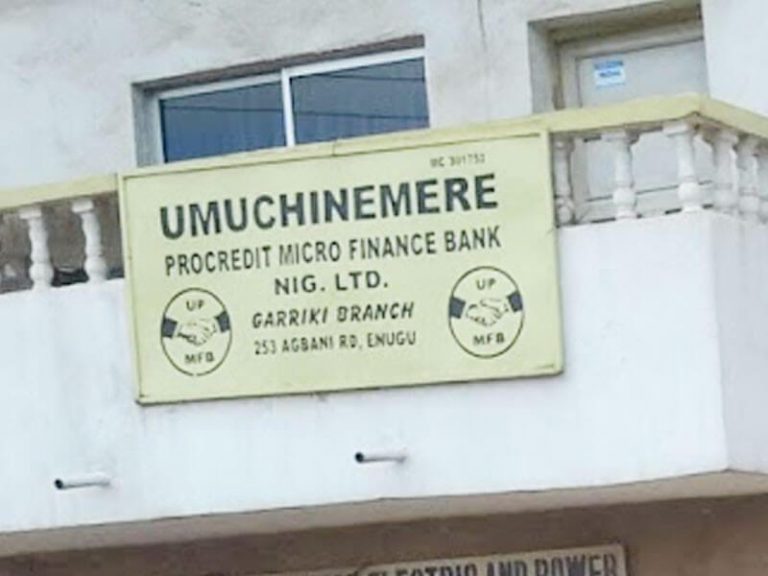The management of Enugu-based Umuchinemere Pro-credit Micro Finance Bank (UPMFB), says it empowered a total of 2,356 active poor people in the state with N518,812,400 operational capital between January and June 2020.
The money, according to a statement by the bank, helped the beneficiaries finance their micro and small scale enterprises, thereby sustaining and improving their well being in line with its objective of poverty alienation as envisioned by its owner, the Catholic diocese of Enugu.
According to the statement by the bank’s head of the public/media relations unit, Abuchi Anueyiagu, the disbursement was N46.8m less than the N565,584,457 paid out to 2,503 persons in the corresponding period of last year.
The gender distribution of beneficiaries showed that of the total N519m, 1,007 females, 42.47% were given the sum of N288,215,500, representing 55.55%; while a total of 1,349 male beneficiaries (57.25%) received the balance of N230,596,900 or 44.44% of total disbursed.
A further breakdown showed that the sum of N37m was granted to farmers as agriculture loans, as against the sum of N50m that they received within the same period of 2019.
The statement quoted UPMFB’s head of Credit, Charles Udeani, as lamenting the “general decline in loan disbursement, both in terms of amount/volume and number of beneficiaries from the preceding year, with a 147 decrease in the number of the beneficiaries from the one of 2019.”
The bank also lamented the difficulties associated with loan recovery and the outright unwillingness by recalcitrant debtors to repay loans, a situation it said is being compounded by what it listed as “the lack of adequate, efficient, effective and easily accessible ICT national bio-data base to check or track borrowers and their records.”
These, it stressed, have continued to hamper the granting of more loans to enable the bank meet the financial needs of the active poor in the society.
Udeani reiterated a strong case for the establishment of a special court to handle loan repayment defaults, observing that the lack of strong laws and instruments for loan recovery poses a serious impediment to granting credit facilities to loan seekers.
This, he continued, is a big problem to meeting the financial needs of people and improving national economic growth and development.
Udeani noted that in societies where these things are available, there are minimal loan repayment default cases, because there are consequences for default, since it determines credit rating of anyone seeking loan from financial institutions.








